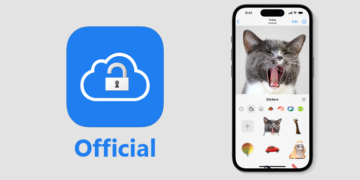The digital landscape is booming, and with it, the demand for skilled digital marketers. This surge has created a fertile ground for freelance digital marketers, offering flexibility, autonomy, and the potential for high earnings. However, navigating the freelance world requires more than just marketing expertise. It demands a blend of business acumen, self-discipline, and a constant drive to stay ahead of the curve. This comprehensive guide will provide you with the essential tips and strategies to not just survive, but thrive as a freelance digital marketer.
Freelance Digital Marketing: Navigating the Digital Landscape
As the digital landscape continues to evolve, freelance digital marketing has emerged as a lucrative career option. The ability to leverage online platforms, social media, and search engines for businesses’ growth has fuelled the demand for skilled digital marketers.
Digital marketing freelancers are professionals who offer a wide range of services, including social media management, content creation, SEO optimization, email marketing, and more. This dynamic field allows you to tailor your services to your strengths and passions.
1. Defining Your Niche:
The digital marketing world is vast. Instead of trying to be a jack-of-all-trades, focus on specializing in a specific niche. This could be SEO, social media marketing, content creation, email marketing, or paid advertising. Niche specialization allows you to develop deep expertise, making you more attractive to clients seeking specialized skills. It also helps you target your marketing efforts more effectively.
2. Building a Strong Portfolio:
Your portfolio is your most powerful marketing tool. Showcase your best work, highlighting successful campaigns, quantifiable results, and client testimonials. If you’re just starting, consider offering discounted services or even working on pro bono projects to build your portfolio. A well-crafted portfolio demonstrates your skills and builds credibility.
3. Setting Competitive Rates:
Pricing your services correctly is crucial. Research the going rates for your niche and experience level. Consider factors like your expertise, the complexity of the project, and the value you bring to clients. Don’t undervalue yourself, but also be realistic about your pricing, especially when starting. Offer different packages or pricing tiers to cater to various client budgets.
4. Finding and Attracting Clients:
- Networking: Attend industry events, join online communities, and connect with potential clients on LinkedIn. Networking is a powerful way to build relationships and generate leads.
- Online Platforms: Utilize freelance platforms like Upwork, Fiverr, and Guru to find clients. While these platforms can be competitive, they offer access to a large pool of potential clients.
- Content Marketing: Create valuable content, such as blog posts, articles, and case studies, to showcase your expertise and attract clients organically.
- Social Media Marketing: Use social media platforms to promote your services, connect with potential clients, and build your personal brand.
- Referrals: Encourage satisfied clients to refer you to their network. Referrals are often the best source of new business.
5. Mastering Client Communication:
Clear and consistent communication is essential for building strong client relationships. Respond promptly to inquiries, provide regular updates on project progress, and be proactive in addressing any concerns. Active listening and clear communication can prevent misunderstandings and ensure client satisfaction.
6. Delivering High-Quality Work:
Consistently delivering high-quality work is the cornerstone of a successful freelance career. Meet deadlines, exceed expectations, and go the extra mile to ensure client satisfaction. Happy clients are more likely to provide repeat business and referrals.
7. Managing Your Finances:
Freelancing requires careful financial management. Track your income and expenses, set aside money for taxes, and create a budget. Consider using accounting software to simplify your financial management. Having a solid financial foundation is crucial for long-term success.
8. Staying Up-to-Date:
The digital marketing landscape is constantly evolving. Stay up-to-date with the latest trends, technologies, and best practices by reading industry blogs, attending webinars, and taking online courses. Continuous learning is essential for staying competitive and delivering cutting-edge solutions to your clients.
9. Building Your Personal Brand:
Your personal brand is how you present yourself to the world. Develop a strong online presence by creating a professional website, engaging on social media, and showcasing your expertise. A strong personal brand can help you stand out from the competition and attract high-quality clients.
10. Setting Boundaries:
Freelancing offers flexibility, but it’s important to set boundaries between work and personal life. Define your working hours, communicate them clearly to clients, and stick to them as much as possible. Setting boundaries prevents burnout and ensures you have time for yourself and your loved ones.
11. Investing in Tools and Resources:
Invest in essential tools and resources that can help you streamline your work and improve your efficiency. This might include project management software, SEO tools, social media management platforms, and design software. Investing in the right tools can save you time and money in the long run.
12. Seeking Feedback and Testimonials:
Regularly seek feedback from your clients to identify areas for improvement. Positive testimonials can be powerful marketing tools, so don’t hesitate to ask satisfied clients for their feedback. Use testimonials on your website and marketing materials to build credibility and trust.
13. Networking with Other Freelancers:
Connecting with other freelancers can be incredibly valuable. You can share experiences, learn from each other, and even collaborate on projects. Building a supportive network of fellow freelancers can help you navigate the challenges of the freelance world.
14. Mastering Time Management:
Effective time management is crucial for freelance success. Use time blocking, prioritization techniques, and project management tools to stay organized and meet deadlines. Learning to manage your time effectively will increase your productivity and reduce stress.
15. Embracing Continuous Improvement:
The freelance journey is a continuous learning process. Be open to feedback, embrace challenges, and constantly strive to improve your skills and services. By continuously improving, you’ll stay ahead of the competition and build a thriving freelance business.
Conclusion:
Mastering freelance digital marketing requires a combination of marketing expertise, business skills, and personal attributes. By following these tips and strategies, you can position yourself for success in this exciting and rewarding field. Remember that building a successful freelance career takes time, effort, and dedication. Stay focused, persistent, and passionate about your work, and you’ll be well on your way to achieving your freelance goals. Sources and related content.
Also Read :
10 Creative Ways to Utilize Saveinsta for Social Media Success
FAQs
Q: How do I set my freelance digital marketing rates?
A: Research industry standards, consider your experience, and factor in the scope of work when determining your rates. Be transparent with clients about your pricing structure.
Q: What qualifications are necessary for a freelance digital marketer?
A: Strong communication, analytical thinking, creativity, and a deep understanding of various digital marketing channels are crucial for success.
Q: How can a freelancer like me efficiently manage their time?
A: Set clear work hours, use time management tools, and prioritize tasks to maintain a healthy work-life balance.
Q: How can I handle client expectations and feedback?
A: Clearly outline expectations from the start, maintain open communication, and view feedback as an opportunity for growth.
Q: What are some effective ways to market my freelance digital marketing services?
A: Utilize social media, content marketing, email campaigns, and networking events to showcase your expertise and attract clients.


























